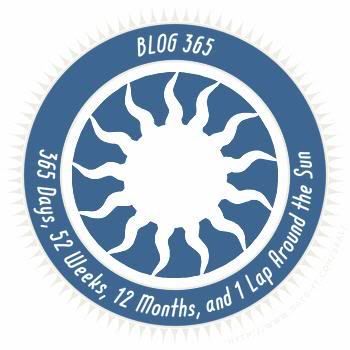Today, we are bailing out financial institutions who are feeling the brunt of their risky investments and unregulated activities of the past decade. Well, back in the late 1980's, Lincoln Savings & Loan was a failed financial institution that went under due to risky investments and unregulated activities. Over 20,000 Americans lost all of their money and the cost of the savings and loan crisis amounted to $120 billion.
Sen. John McCain was one of five US Senators (Alan Cranston of California, Donald Riegle of Michigan, John Glenn of Ohio and both Arizona senators, Dennis DeConcini and McCain) who were accused of improperly aiding his political patron, Charles Keating, chairman of the Lincoln Savings and Loan Association. The bipartisan Senate Ethics Committee launched investigations and formally reprimanded Senator McCain for his role in the scandal - the first such Senator to receive a major party nomination for president. At the heart of the scandal was Keating's Lincoln Savings and Loan Association, which took advantage of deregulation in the 1980s to make risky investments with its depositors' money. McCain intervened on behalf of Charles Keating with federal regulators tasked with preventing banking fraud, and championed legislation to delay regulation of the savings and loan industry -- actions that allowed Keating to continue his fraud at an incredible cost to taxpayers.
When the savings and loan industry collapsed, Keating's failed company put taxpayers on the hook for $3.4 billion and more than 20,000 Americans lost their savings. John McCain was reprimanded by the bipartisan Senate Ethics Committee, but the ultimate cost of the crisis to American taxpayers reached more than $120 billion.
Sen. Barack Obama's campaign has put together a short documentary that brings Sen. McCain's involvement with the Keating 5, his support of the savings and loan scandal, and how his policies have brought our economic chickens home to roost during the current economic challenges.
"Keating Economics - John McCain and the Making of a Financial Crisis"
The LA Times recently ran a story that connects the dots between the savings and loans scandal of the 1980's, the Wall Street bailout of 2008, and John McCain.
"Keating 5 ring a bell?"
By Rosa Brooks, LA Times
September 25, 2008
Once upon a time, a politician took campaign contributions and favors from a friendly constituent who happened to run a savings and loan association. The contributions were generous: They came to about $200,000 in today's dollars, and on top of that there were several free vacations for the politician and his family, along with private jet trips and other perks. The politician voted repeatedly against congressional efforts to tighten regulation of S&Ls, and in 1987, when he learned that his constituent's S&L was the target of a federal investigation, he met with regulators in an effort to get them to back off.
That politician was John McCain, and his generous friend was Charles Keating, head of Lincoln Savings & Loan. While he was courting McCain and other senators and urging them to oppose tougher regulation of S&Ls, Keating was also investing his depositors' federally insured savings in risky ventures. When those lost money, Keating tried to hide the losses from regulators by inducing his customers to switch from insured accounts to uninsured (and worthless) bonds issued by Lincoln's near-bankrupt parent company. In 1989, it went belly up -- and more than 20,000 Lincoln customers saw their savings vanish.
Keating went to prison, and McCain's Senate career almost ended. Together with the rest of the so-called Keating Five -- Sens. Alan Cranston (D-Calif.), John Glenn (D-Ohio), Don Riegle (D-Mich.) and Dennis DeConcini (D-Ariz.), all of whom had also accepted large donations from Keating and intervened on his behalf -- McCain was investigated by the Senate Ethics Committee and ultimately reprimanded for "poor judgment."
But the savings and loan crisis mushroomed. Eventually, the government spent about $125 billion in taxpayer dollars to bail out hundreds of failed S&Ls that, like Keating's, fell victim to a combination of private-sector greed and the "poor judgment" of politicians like McCain.
The $125 billion seems like small change compared to the $700-billion price tag for the Bush administration's proposed Wall Street bailout. But the root causes of both crises are the same: a lethal mix of deregulation and greed.
Today's meltdown began when unscrupulous mortgage lenders pushed naive borrowers to sign up for loans they couldn't afford to pay back. The original lenders didn't care: They pocketed the upfront fees and quickly sold the loans to others, who sold them to others still. With the government MIA, soon mortgage-backed securities were zipping around the globe. But by the time many ordinary people began to struggle to make their mortgage payments, the numerous "good" loans (held by borrowers able to pay) had gotten hopelessly mixed up with the bad loans. Investors and banks started to panic about being left with the hot potato -- securities backed mainly by worthless loans. And so began the downward spiral of a credit crunch, short-selling, stock sell-offs and bankruptcies.
Could all this have been prevented? Sure. It's not rocket science: A sensible package of regulatory reforms -- like those Barack Obama has been pushing since well before the current meltdown began -- could have kept this most recent crisis from escalating, just as maintaining reasonable regulatory regimes for S&Ls in the '80s could have prevented that crisis (McCain learned this the hard way).
But, despite his political near-death experience as a member of the Keating Five, McCain continued to champion deregulation, voting in 2000, for instance, against federal regulation of the kind of financial derivatives at the heart of today's crisis.
Shades of the Keating Five scandal don't end there. This week, for instance, news broke that until August, the lobbying firm owned by McCain campaign manager Rick Davis was paid $15,000 a month by Freddie Mac, one of the mortgage giants implicated in the current crisis (now taken over by the government and under investigation by the FBI). Apparently, Freddie Mac's plan was to gain influence with McCain's campaign in hopes that he would help shield it from pesky government regulations. And until very recently, Freddie Mac executives probably figured money paid to Davis' firm was money well spent. "I'm always in favor of less regulation," McCain told the Wall Street Journal in March.
These days, McCain is singing a different tune.
"There are no atheists in foxholes and no ideologues in financial crises," Fed Chairman Ben Bernanke said last week, explaining the sudden mass conversion of so many onetime free marketeers into champions of robust government intervention. Fair enough. But as you try to figure out what and who can get us out of this mess, beware of those who now embrace regulation with the fervor of new converts.
By Rosa Brooks, LA Times
September 25, 2008
Once upon a time, a politician took campaign contributions and favors from a friendly constituent who happened to run a savings and loan association. The contributions were generous: They came to about $200,000 in today's dollars, and on top of that there were several free vacations for the politician and his family, along with private jet trips and other perks. The politician voted repeatedly against congressional efforts to tighten regulation of S&Ls, and in 1987, when he learned that his constituent's S&L was the target of a federal investigation, he met with regulators in an effort to get them to back off.
That politician was John McCain, and his generous friend was Charles Keating, head of Lincoln Savings & Loan. While he was courting McCain and other senators and urging them to oppose tougher regulation of S&Ls, Keating was also investing his depositors' federally insured savings in risky ventures. When those lost money, Keating tried to hide the losses from regulators by inducing his customers to switch from insured accounts to uninsured (and worthless) bonds issued by Lincoln's near-bankrupt parent company. In 1989, it went belly up -- and more than 20,000 Lincoln customers saw their savings vanish.
Keating went to prison, and McCain's Senate career almost ended. Together with the rest of the so-called Keating Five -- Sens. Alan Cranston (D-Calif.), John Glenn (D-Ohio), Don Riegle (D-Mich.) and Dennis DeConcini (D-Ariz.), all of whom had also accepted large donations from Keating and intervened on his behalf -- McCain was investigated by the Senate Ethics Committee and ultimately reprimanded for "poor judgment."
But the savings and loan crisis mushroomed. Eventually, the government spent about $125 billion in taxpayer dollars to bail out hundreds of failed S&Ls that, like Keating's, fell victim to a combination of private-sector greed and the "poor judgment" of politicians like McCain.
The $125 billion seems like small change compared to the $700-billion price tag for the Bush administration's proposed Wall Street bailout. But the root causes of both crises are the same: a lethal mix of deregulation and greed.
Today's meltdown began when unscrupulous mortgage lenders pushed naive borrowers to sign up for loans they couldn't afford to pay back. The original lenders didn't care: They pocketed the upfront fees and quickly sold the loans to others, who sold them to others still. With the government MIA, soon mortgage-backed securities were zipping around the globe. But by the time many ordinary people began to struggle to make their mortgage payments, the numerous "good" loans (held by borrowers able to pay) had gotten hopelessly mixed up with the bad loans. Investors and banks started to panic about being left with the hot potato -- securities backed mainly by worthless loans. And so began the downward spiral of a credit crunch, short-selling, stock sell-offs and bankruptcies.
Could all this have been prevented? Sure. It's not rocket science: A sensible package of regulatory reforms -- like those Barack Obama has been pushing since well before the current meltdown began -- could have kept this most recent crisis from escalating, just as maintaining reasonable regulatory regimes for S&Ls in the '80s could have prevented that crisis (McCain learned this the hard way).
But, despite his political near-death experience as a member of the Keating Five, McCain continued to champion deregulation, voting in 2000, for instance, against federal regulation of the kind of financial derivatives at the heart of today's crisis.
Shades of the Keating Five scandal don't end there. This week, for instance, news broke that until August, the lobbying firm owned by McCain campaign manager Rick Davis was paid $15,000 a month by Freddie Mac, one of the mortgage giants implicated in the current crisis (now taken over by the government and under investigation by the FBI). Apparently, Freddie Mac's plan was to gain influence with McCain's campaign in hopes that he would help shield it from pesky government regulations. And until very recently, Freddie Mac executives probably figured money paid to Davis' firm was money well spent. "I'm always in favor of less regulation," McCain told the Wall Street Journal in March.
These days, McCain is singing a different tune.
"There are no atheists in foxholes and no ideologues in financial crises," Fed Chairman Ben Bernanke said last week, explaining the sudden mass conversion of so many onetime free marketeers into champions of robust government intervention. Fair enough. But as you try to figure out what and who can get us out of this mess, beware of those who now embrace regulation with the fervor of new converts.
Read the entire LA Times article about John McCain's tie with Charles Keating here.
Read the CNN.com article about increase in US bank failures here.
View more information about John McCain's tie to Keating Economics.
Read the CNN.com article about the Obama documetary that ties John McCain's involvement with the Keating 5 to today's economic disasters here and here.
plez sez: financial institutions are the stewards of our capitalistic society which in turn in the backbone of our democracy. when these institutions fail in their stewardship of our economic engine, it is a blow to our national security. it is a wonder that the government supports these financial institutions the autonomy to run unregulated as long as they are making money and greasing the skids of the economy, but this same "free market" government is so quick to "rescue" these institutions when their risky investments are the cause of their failed stewardship.
sen. john mccain lacks the honor and authority to be the president of the united states. he was knee deep in the keating 5 scandal, barely escaping with his political life after offering his act of contrition. fast forward 20 years, he is still a flawed character with no moral center and no authority to act in our current (and exceedingly familiar) crisis... only this time, the bill to the american people has grown five-fold.
mccain plays petty politics by calling off his campaign and heading back to washington, where he does NOTHING for 48 hours, only to resume his campaign in time to participate in a debate after his presidential rival calls his bluff. mccain doesn't even have a good poker face!
instead of LEADING (as he claimed), he falls in lockstep with the democratic leadership in congress and pushes for a quick and hastily drafted bill that turns over the keys to a failing wall street. instead of standing on the principles he so proudly crows about, mccain goes ahead and rewards those deregulated financial institutions for taking advantage of deregulation! as is his pattern, john mccain lacks character and moral authority when it comes to regulations and the financial industry.
this wall street bailout is hitting a little to close to home... it is no wonder that mccain wants to change the subject away from the economy!













No comments:
Post a Comment